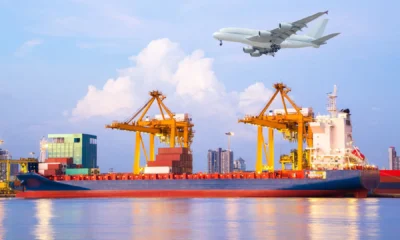India’s booming economy and strategic location make it a prime destination for international cargo. Whether you’re a business looking to tap into the vast Indian market or an individual sending goods, understanding the essentials of shipping cargo to India can simplify the process and help you avoid common hurdles. Here’s a concise guide to help you manage your cargo shipments to this dynamic country.
Why Ship Cargo to India?
- Growing Market: India’s expanding economy presents significant opportunities for businesses across various sectors, from consumer goods and electronics to industrial machinery and pharmaceuticals. Shipping cargo to India allows you to access a vast and diverse market with immense potential.
- Strategic Location: India’s central position in South Asia makes it a critical hub for regional trade. Efficient cargo shipping to India can enhance your logistical reach within the subcontinent and beyond.
- High Demand: With a large and increasingly affluent population, India has high demand for a wide range of products. Whether you’re exporting goods or sending personal shipments, there’s a substantial market for various types of cargo.
Key Considerations for Shipping Cargo to India
- Customs Regulations: India has specific customs regulations and import requirements that must be adhered to. Ensure you have all necessary documentation, including commercial invoices, packing lists, and import permits. Understanding customs duties and taxes is crucial to avoid unexpected costs and delays.
- Shipping Methods: Choose the right shipping method based on your cargo’s size, urgency, and budget. Air freight is ideal for faster delivery of high-value or time-sensitive items, while sea freight is more economical for larger shipments. Each method offers different benefits depending on your needs.
- Packaging and Labeling: Proper packaging is essential to protect your cargo during transit. Ensure that your packaging can withstand handling and environmental conditions typical of sea or air transport. Accurate labeling is also important for smooth customs clearance and delivery.
- Infrastructure and Logistics: India’s infrastructure varies by region, with major cities like Mumbai, Delhi, and Chennai having well-developed ports and logistics networks. However, remote areas may face logistical challenges. Research the specific destination to address any potential issues.
- Insurance: Given the long journey and potential risks associated with international shipping, consider purchasing cargo insurance. This provides protection against loss or damage during transit, offering peace of mind.
Choosing the Right Shipping Provider
- Experience and Expertise: Opt for a shipping provider with experience in handling cargo to India. Look for companies with a strong reputation and knowledge of Indian customs regulations and logistics.
- Service Options: Providers offer various services, including full-container-load (FCL) and less-than-container-load (LCL) options for sea freight, as well as express air cargo services. Select a provider that fits your specific needs and shipping requirements.
- Cost and Efficiency: Compare costs among different providers, considering factors such as shipping rates, transit times, and additional services. Choose a provider that offers the best value while meeting your shipping needs.
- Customer Support: Effective customer support is crucial for resolving any issues that may arise during the shipping process. Choose a provider known for responsive and reliable support.
Tips for Smooth Shipping to India
- Research and Plan: Thoroughly research your destination to understand customs regulations and potential logistical challenges. Planning ahead helps avoid delays and ensures a smooth shipment.
- Prepare Documentation: Ensure all required documentation is accurate and complete. Key documents include the commercial invoice, packing list, bill of lading, and certificate of origin.
- Track Your Shipment: Utilize tracking services provided by your shipping provider to monitor the progress of your cargo. This allows you to manage expectations and address any issues promptly.
- Stay Informed: Keep up with any changes in regulations or shipping procedures. Staying informed helps ensure compliance and facilitates smooth handling of your cargo.
In Conclusion
Shipping cargo to India offers valuable opportunities for businesses and individuals alike. By understanding key considerations, selecting the right shipping provider, and following best practices, you can navigate the process effectively and ensure your shipments arrive safely and on time. Whether expanding your market reach or sending personal items, efficient cargo management is essential for leveraging India’s growing and diverse market.


























